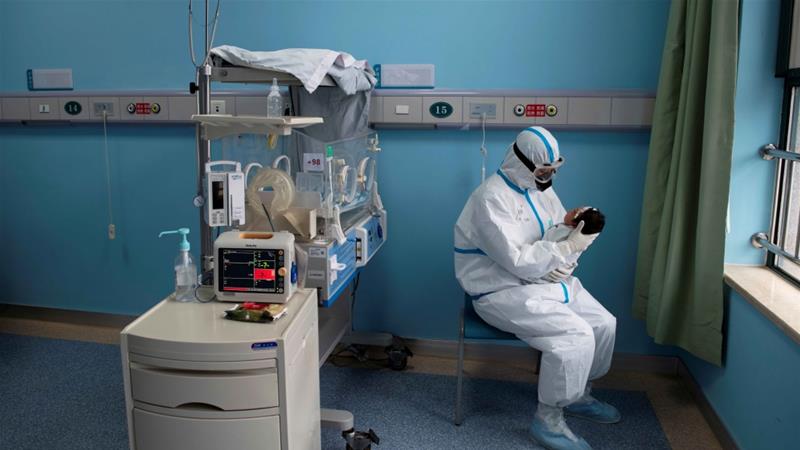Forgotten Dairies
Next pandemic: Countries should focus on several strategies to build epidemic resilience and capacity -By Ayesha Jacub

A crisis can expose and exacerbate fault lines. The greater the crisis, the deeper the fissures. By the time an infectious disease reaches pandemic-level, the opportunity to build tested and trusted systems and relationships has long passed. Any novel structures implemented at this point are ad-hoc, but not necessarily ineffective.
Globally, there were many opportunities to foresee a major pandemic. As a consequence of accelerated globalisation, there have been infectious diseases with major regional and global impacts. The severe acute respiratory syndrome (SARS) in 2003 impacted Asian countries, H1N1 in 2009 showed the scope and impact of pandemic influenza and the 2014 Ebola epidemic in West Africa showed how disease spreads in weak health systems.
Future pandemics should be anticipated, as humans continue to adversely impact biodiversity and as the global movement of people and goods accelerates. But in the inter-pandemic years, we have the opportunity to build systems, structures and relationships to meet the next pandemic with a measure of preparedness.
Building cooperation across sectors
As we are observing at a global level in real-time, pandemic preparedness and response require a whole-of-government, whole-of-society approach, since it is not just the health sector that is affected but also the economic, educational and social welfare sectors – among others.
The WHO had been encouraging countries to ensure that they met minimum standards for pandemic preparedness long before this pandemic. How these recommendations were received ultimately depended on priorities and political decisions at regional and national levels.
For example, the importance that the Trump administration has placed on pandemic preparedness was evidenced by the decision to disband the White House pandemic response team two years ago. Today, amid a growing outbreak in the country, tensions are increasing between federal and state levels of government, as the US health care system struggles to cope with the influx of COVID-19-infected patients.
In contrast, several Asian countries like Singapore and Taiwan have been more successful in handling coronavirus outbreaks. Both countries had experience with SARS and H1N1 epidemics which allowed them to develop emergency plans and gear up their pandemic preparedness with intragovernmental cooperation.
Singapore has even held regular drills for governmental agencies, health facilities and transportation hubs to test and build preparedness for an epidemic. Thus, the country not only had a prepared health care system, but also mechanisms to control the movement of people, monitor the spread of the disease, and ensure proper information-sharing and cooperation between institutions, all while continuing essential services and the provision of social support services.
Of course, the ability of these Asian countries to mitigate the spread of the coronavirus depends on a range of factors including modes of governance and varying levels of citizen surveillance, but ultimately there were crisis plans in place which spanned various levels of government and society.
Building health systems
In the time between pandemics, there needs to be an urgent push toward building health systems which can withstand and mitigate outbreaks of infectious disease while maintaining their core functions.
This type of policy is in line with a resilience framework which has been increasingly discussed after the Ebola outbreak in West Africa, where local health care systems were caught unprepared for the outbreak.
Building blocks of resilient health systems include well-trained healthcare workers, the provision of needed equipment and infrastructure to existing health facilities, enabling them to handle infectious patients; and the adequate supply of medical materials, including protective gear and proper remuneration for health staff.
The “resilience framework” and its purely technocratic approach to building solid health systems, however, may ignore local socio-economic contexts and power dynamics which influence how national health systems are structured, particularly in the “global south”. Building resilience, therefore, should not be divorced from important work on equity and human rights.
It also has to be recognised that not all countries have the capacity or the financial means to build resilient healthcare sectors. That is why an international mechanism needs to be developed to assist such nations.
Having well-prepared healthcare systems across the world is in the interests of the entire international community, given the fact that diseases know no borders.
Building trust
Building trust is an important element when it comes to pandemics. Studies around the Ebola epidemic show that compliance with public health messaging was low when trust in government or official structures was low.
According to one study, “information alone may not generate compliance if citizens do not trust the source of that information in the first place”. This is important when it comes to issues like self-quarantine and social distancing.
This is why political leaders need to focus on creating public trust. In the context of the coronavirus pandemic, some heads of state seem to have understood that while others have not.
So far both President Trump and British Prime Minister Boris Johnson, for instance, have been criticised for their contradictory messaging and unconvincing rhetoric. Others, like South Africa’s President Cyril Ramaphosa have been more successful in inspiring public trust, delivering clear, regular, well-timed public messaging (of course depending on the news source), which was described as “powerful and on point”.
Trust also has to be built in the international arena. The COVID-19 pandemic has not only showcased traditional fissures but has also created new ones.
In some places, political disputes have stood in the way of pandemic action. In Iran, for example, the US sanctions have affected the ability of the government to cope with the virus by preventing it from purchasing much-needed medical supplies and equipment. In Syria, medical staff in opposition-held Idlib province have accused Damascus of not forwarding WHO-provided testing kits for the virus.
Elsewhere, countries have accused each other of “stealing” medical supplies. Italian media, for instance, reported that the Czech government had “seized” a shipment of medical supplies from China intended for Italy. France accused the US of intercepting consignments of masks in Shanghai and paying a higher price in order to redirect them to the US.
Mistrust has also dominated information-sharing on COVID-19 between countries. China, for example, has been accused of not reporting on time the outbreak in Wuhan and even underreporting its scope. Taiwan, which China does not recognise as an independent state, has also accused the WHO of not sharing information on COVID-19 or passing on information that the country has reported on its prevention methods and cases.
This level of mistrust and self-interest in international relations is particularly dangerous in times of a pandemic. Each country has to realise that it alone cannot defeat the outbreak; it needs the cooperation and help of everyone else.
Hard lessons will have to be learned from this pandemic so we do not repeat the same mistakes next time around. We have to build solid public health systems, build multi and trans-sectoral infrastructure as well as enhance local, international and transnational relationships, to ensure that there is enough preparedness across all of society to cope with future outbreaks.



















